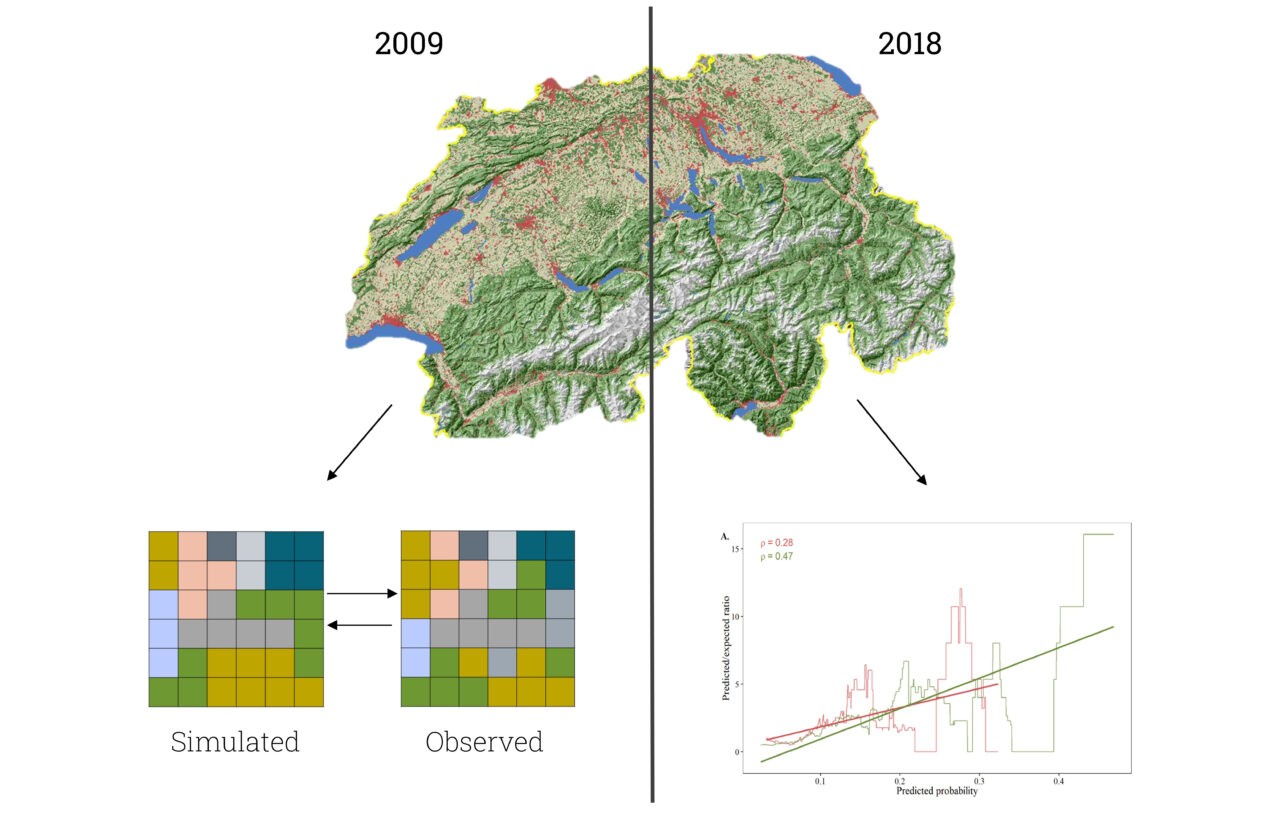
Benjamin Black, Maarten J. van Strien, Antoine Adde, Adrienne Grêt-Regamey
2022
Full text
This study demonstrates that evaluating transition potential predictions provides detail into model behaviour and performance that cannot be obtained from simulated map comparison alone.
This is illustrated by modelling LULC transitions in Switzerland using both Logistic Regression and Random Forests.
The increasing complexity of the dynamics captured in Land Use and Land Cover (LULC) change modelling has made model behaviour less transparent and calibration more extensive. For cellular automata models in particular, this is compounded by the fact that validation is typically performed indirectly, using final simulated change maps; rather than directly considering the probabilistic predictions of transition potential.
The results emphasize the need for LULC modellers to explicitly consider the performance of individual transition models independently to ensure robust predictions. Additionally, this study highlights the potential for predictor variable selection as a means to improve transition model generalizability and parsimony, which is beneficial for simulating future LULC change.